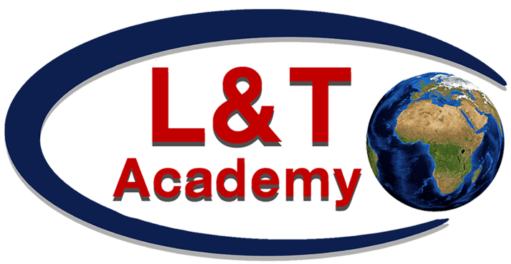Description
Course Description:
This 12-week course is designed to enhance students’ reading and comprehension skills. Through a variety of texts—ranging from narrative fiction to academic articles—students will learn to apply reading strategies, expand their vocabulary, and develop critical thinking skills. The course aims to improve students’ ability to understand, analyze, and respond to texts in both written and verbal forms.
Course Objectives:
- Develop effective reading strategies for various text types.
- Enhance comprehension skills through the analysis of different genres.
- Strengthen vocabulary and understanding of complex language structures.
- Cultivate critical thinking and analytical skills.
- Practice summarizing, paraphrasing, and synthesizing information from texts.
- Learn to identify and evaluate main ideas, arguments, and supporting details.
Weekly Outline:
Week 1: Introduction to Reading Strategies
- Topics:
- Overview of the course and expectations.
- Introduction to basic reading strategies: skimming, scanning, and close reading.
- Identifying purpose, audience, and context in a text.
- Activities:
- Practical exercises on applying reading strategies.
- Group discussion on different reading approaches.
Week 2: Vocabulary Development and Context Clues
- Topics:
- Techniques for improving vocabulary.
- Using context clues to infer meanings of unfamiliar words.
- Understanding word roots, prefixes, and suffixes.
- Activities:
- Vocabulary-building exercises.
- Reading passages with vocabulary focus and discussion.
Week 3: Understanding Main Ideas and Supporting Details
- Topics:
- Identifying main ideas in paragraphs and longer texts.
- Distinguishing between main ideas and supporting details.
- Recognizing topic sentences and thesis statements.
- Activities:
- Practice exercises on identifying main ideas.
- Analysis of sample paragraphs for structure.
Week 4: Summarizing and Paraphrasing
- Topics:
- Techniques for effective summarizing.
- Paraphrasing while maintaining the original meaning.
- Avoiding plagiarism through proper paraphrasing.
- Activities:
- Exercises on summarizing and paraphrasing short texts.
- Peer review of paraphrasing practice.
Week 5: Reading Narrative Texts – Plot, Character, and Setting
- Topics:
- Understanding narrative structure: plot, character development, and setting.
- Analyzing the key elements of a story.
- Introduction to themes and motifs in literature.
- Activities:
- Close reading and discussion of a short story.
- Character analysis exercises.
Week 6: Analyzing Fiction – Themes and Symbols
- Topics:
- Identifying and interpreting themes in fiction.
- Understanding and analyzing symbols and motifs.
- Exploring the relationship between themes and character development.
- Activities:
- Group analysis of a literary text for themes and symbols.
- Writing a thematic analysis essay.
Week 7: Reading Non-Fiction – Structure and Arguments
- Topics:
- Understanding the structure of non-fiction texts (essays, articles).
- Identifying the author’s argument, claims, and supporting evidence.
- Differentiating between facts and opinions.
- Activities:
- Analysis of non-fiction articles for structure and argument.
- Debating the strengths and weaknesses of different arguments.
Week 8: Critical Reading and Evaluation
- Topics:
- Techniques for critical reading and thinking.
- Evaluating the strength and validity of arguments.
- Recognizing biases, assumptions, and logical fallacies.
- Activities:
- Critical reading of opinion pieces or editorials.
- Writing a critical response to a chosen article.
Week 9: Reading Academic Texts – Understanding Complex Structures
- Topics:
- Analyzing the structure of academic texts (journal articles, research papers).
- Understanding abstracts, literature reviews, methodologies, and conclusions.
- Strategies for effective annotation and note-taking.
- Activities:
- Close reading of an academic article with emphasis on structure.
- Annotation and summary exercises.
Week 10: Synthesizing Information from Multiple Texts
- Topics:
- Techniques for synthesizing information from different sources.
- Comparing and contrasting ideas across multiple texts.
- Developing a cohesive argument based on synthesized information.
- Activities:
- Practice synthesizing information from multiple readings.
- Writing a synthesis essay.
Week 11: Interpreting Tone, Irony, and Point of View
- Topics:
- Understanding the impact of tone, irony, and point of view on comprehension.
- Analyzing how authors convey mood and attitude.
- Exploring different narrative perspectives.
- Activities:
- Close reading of texts to identify tone and irony.
- Writing a response that explores the author’s tone and point of view.
Week 12: Final Review and Application
- Topics:
- Review of key concepts and strategies covered in the course.
- Application of reading and comprehension skills to a final project.
- Preparing for final assessments (exam, essay, presentation).
- Activities:
- Group discussions on selected texts.
- Final project presentations or written reports.
Assessment Methods:
- Weekly quizzes and reading comprehension exercises.
- Written assignments, including summaries, paraphrasing exercises, and essays.
- Midterm assessment focusing on reading strategies and comprehension skills.
- Final project or exam involving synthesis and analysis of multiple texts.
Recommended Texts and Resources:
- A variety of texts, including short stories, essays, and academic articles.
- Access to online reading platforms and digital libraries.
- Supplementary reading and comprehension workbooks.
Final Project:
Students will select a topic of interest, gather multiple texts related to the topic, and create a synthesis project that demonstrates their reading and comprehension skills. This could be in the form of a written essay, a multimedia presentation, or a research report.





Reviews
There are no reviews yet.